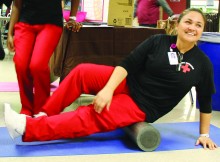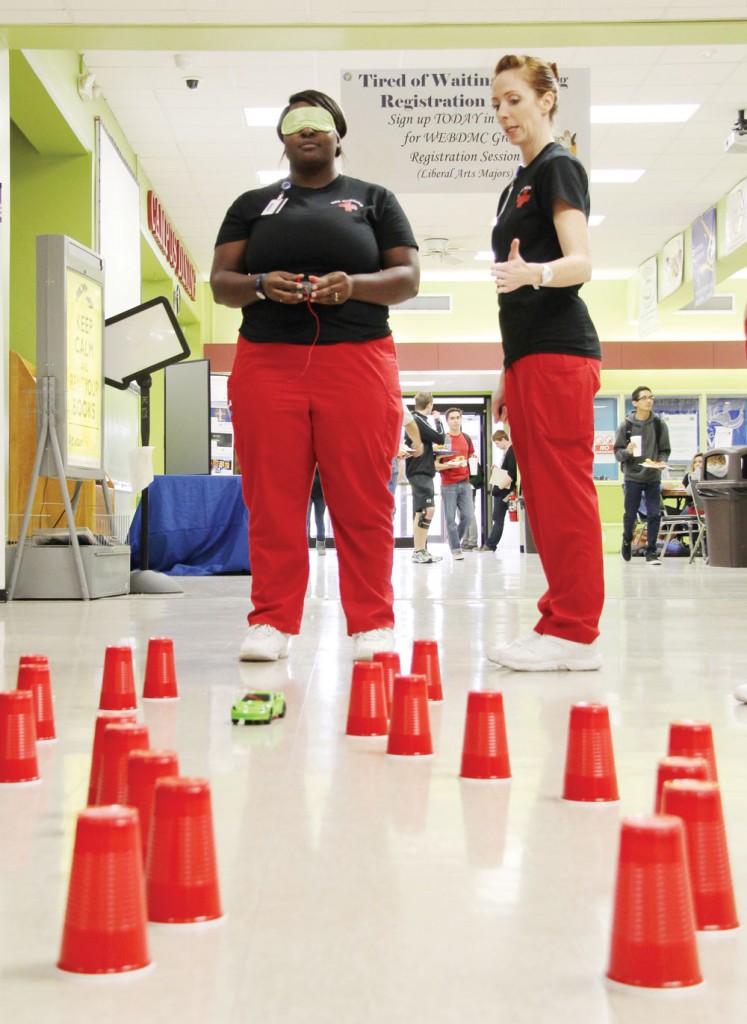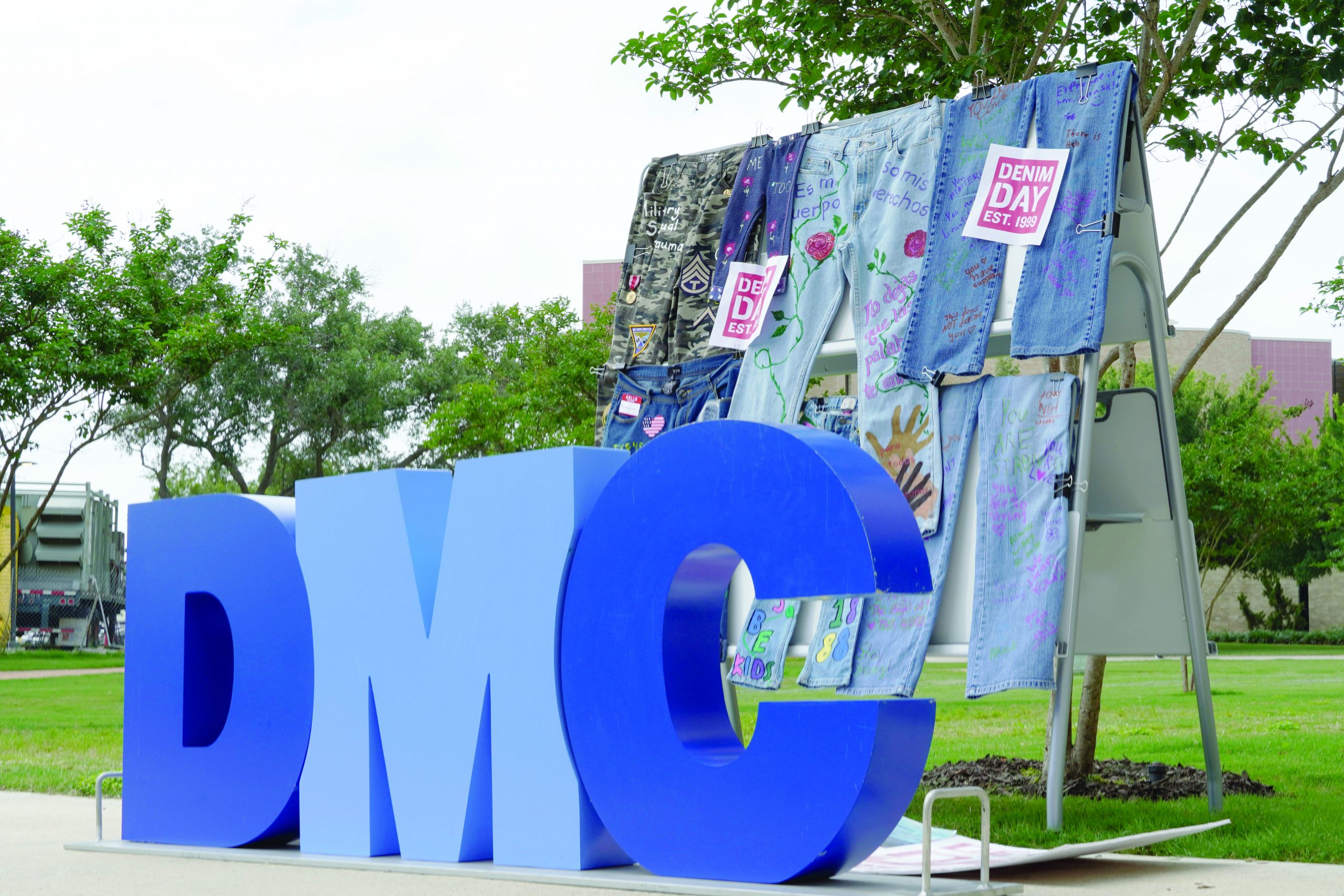Level one nursing students at Del Mar College’s Nurse Education Department presented what they have learned throughout the fall semester by showcasing numerous health-related issues and their resolutions with a student health fair in the Harvin Center on the East Campus. The same event was held on the West Campus at a later time.
On Nov. 19, nearly 50 first-year nursing students from DMC’s Nurse Education Department took on the task of educating their peers on health-related issues by providing numerous setups and booths dedicated to specific health problems and what they can do to manage them. The students were divided into groups and were given a specific health issue and were asked to create interactive exercises to simulate the health issues and present ways to manage them.
Alisha Redick, a first year nursing student, displays to students how sleep deprivation can cause car accidents just like drunken driving.
“The goal of the fair was to help educate those who are interested in healthy living. Not only are we letting people know what we have learned this semester, but we are sharing our knowledge to better educate our fellow classmates, as well as other adults, about proper health and by promoting a positive way of living,” said Veronica Garza, a level one student from the DMC Nurse Education Department.
Topics ranged from sleep deprivation, muscle tissue integrity, stress management, memory loss and ADHD, among many others.
One booth that seemed to stick out was the diversity acceptance group, where students were to crack two different colored eggs and be able to tell what the difference was between them once the insides were revealed, which was impossible, proving the point of the exercise. Diversity acceptance is necessary in the nursing industry because you are to treat each patient equally.
Annie Nieto, also a first-year student who was working the booth, feels that it is most important to have diversity acceptance.
“It’s a crucial aspect of this career because no matter what the person may look like, insured or not insured, you must provide them with the same loving and attentive care that you can possibly give,” she said.
Aside from informational and interactive booths, the student health fair also held a virtual dementia tour. Peers who have family members with dementia were able to gain a better understanding of what the disease is by taking a sensory tour that simulates what people with this problem go through on a daily basis.
The student health fair gave students a taste of what it would be like to interact with real patients who had countless questions for them.






